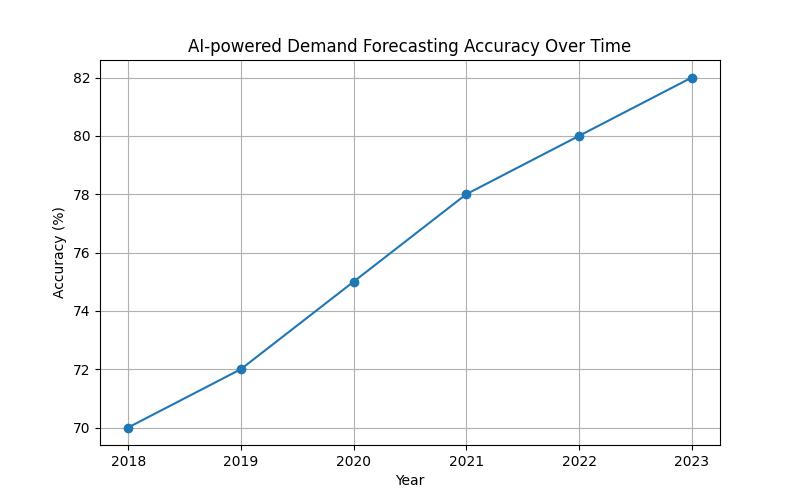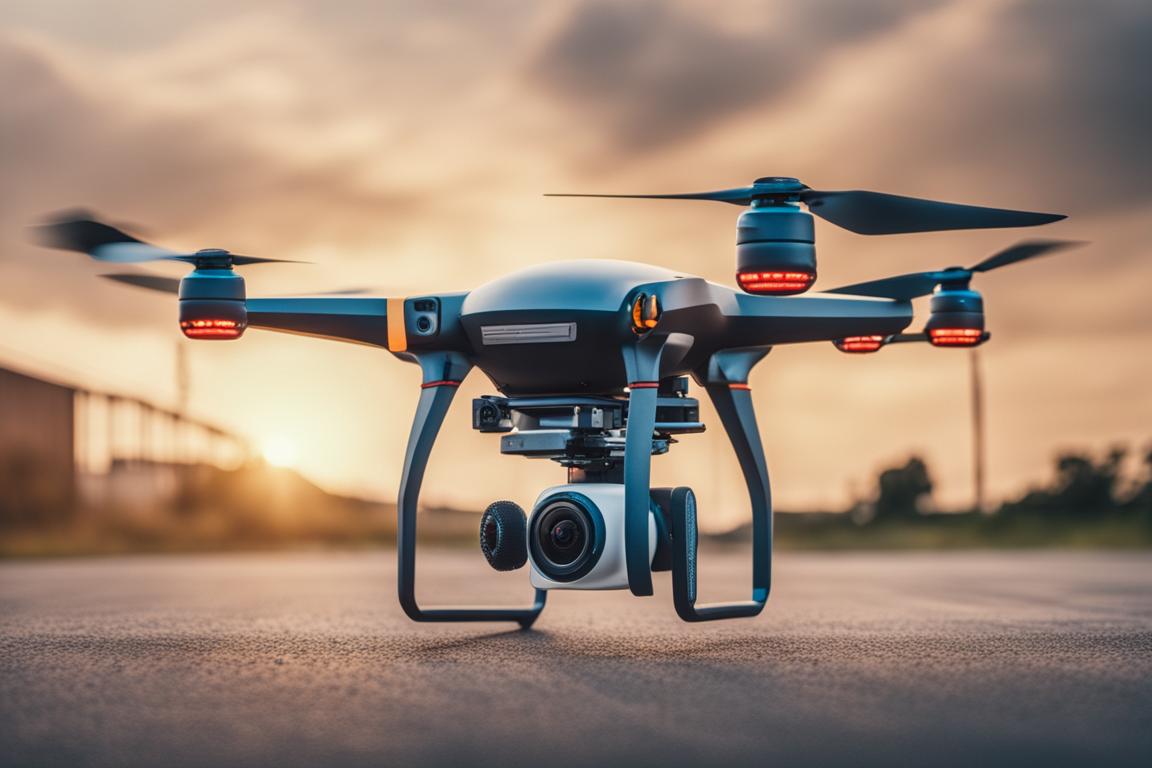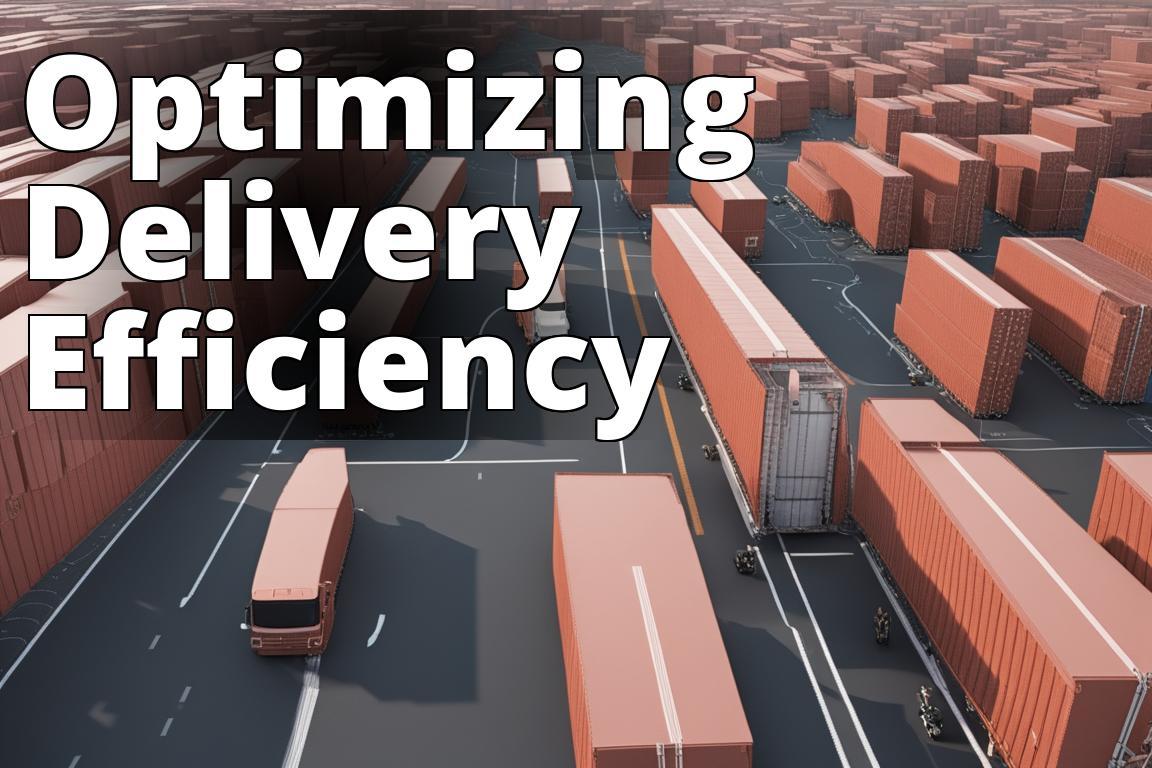What role does AI software play in optimizing logistics and delivery services? AI software has emerged as a transformative force in the logistics and delivery sector, revolutionizing the way operations are managed and executed. It plays a crucial role in optimizing various aspects of logistics and delivery services, including supply chain management, demand forecasting, route optimization, real-time tracking, automated warehousing, autonomous vehicles, customer service, risk management, and security enhancements.

Contents hideRole of AI Software in Optimizing Logistics and Delivery
By reading this article, you will learn:
– AI software improves demand forecasting, inventory management, and delivery planning.
– It optimizes routes, reduces fuel consumption, and enhances fleet management efficiency.
– It enables real-time tracking, predictive analytics, and automation in warehousing and inventory management.
Definition and Significance of AI Software in Logistics and Delivery
AI software, also known as artificial intelligence software, refers to computer programs and algorithms that mimic human intelligence and decision-making processes. In the logistics and delivery context, AI software is used to analyze large amounts of data, derive valuable insights, and automate complex tasks, thereby improving operational efficiency. Its significance lies in streamlining processes, enhancing predictive capabilities, and optimizing resource allocation, ultimately leading to cost savings and improved service quality.
Growing Importance of AI Software in Supply Chain Optimization
As supply chains become increasingly intricate, the need for advanced technologies like AI software becomes more pronounced. By leveraging AI-driven tools, logistics companies can efficiently manage inventory, optimize transportation routes, and meet evolving customer demands in real time. The growing importance of AI software in supply chain optimization is evident in its ability to address logistics complexities, mitigate risks, and facilitate agile decision-making, thereby transforming the industry landscape.
| Aspect | Description |
|---|---|
| Historical Data Analysis for Demand Prediction | AI software processes historical sales data, market trends, and other relevant variables to generate nuanced demand forecasts. |
| Improved Inventory Management and Delivery Planning | AI-driven demand forecasting optimizes inventory levels and develops precise delivery schedules, reducing storage costs and ensuring timely order fulfillment. |

AI-Powered Demand Forecasting
AI software is instrumental in revolutionizing demand forecasting within the logistics and delivery domain. By harnessing historical data and leveraging advanced predictive analytics, AI-powered systems enable companies to anticipate future demand patterns with remarkable accuracy.
Historical Data Analysis for Demand Prediction
AI software processes historical sales data, market trends, and other relevant variables to generate nuanced demand forecasts. By identifying seasonality, consumer behavior shifts, and macroeconomic influences, AI algorithms empower logistics companies to proactively adjust their operations, minimizing stockouts and overstock situations.
Improved Inventory Management and Delivery Planning
Through AI-driven demand forecasting, logistics and delivery firms can optimize inventory levels and develop precise delivery schedules. This not only reduces storage costs but also ensures timely order fulfillment, enhancing customer satisfaction and loyalty.
Route Optimization and Fleet Management
AI plays a pivotal role in optimizing delivery routes and efficiently managing fleets, contributing to significant cost reductions and operational efficiencies.
AI Algorithms for Delivery Route Optimization
AI algorithms analyze variables such as traffic patterns, weather conditions, and delivery priorities to determine the most efficient routes for delivery vehicles. This dynamic optimization minimizes transit times and fuel consumption while maximizing delivery capacity.
Minimizing Fuel Consumption and Cost Reduction
By intelligently optimizing routes, AI software aids in minimizing fuel consumption, thereby leading to cost savings and reduced environmental impact. This benefits the bottom line and aligns with sustainability initiatives, enhancing the brand reputation of logistics and delivery companies.
Enhancing Fleet Management Efficiency
AI software facilitates real-time monitoring of fleet performance, enabling proactive maintenance and route adjustments to mitigate potential disruptions. This results in improved fleet reliability and on-time deliveries, crucial for maintaining customer satisfaction.
Real-Time Tracking and Predictive Analytics
AI-driven real-time tracking systems and predictive analytics are transforming logistics and delivery operations, providing unparalleled visibility and proactive problem-solving capabilities.
AI-Powered Tracking Systems for Real-Time Visibility
AI software enables real-time tracking of shipments, allowing logistics companies to provide customers with accurate delivery ETAs and mitigate uncertainties. This transparency fosters trust and reliability, key factors in customer satisfaction.
Proactive Decision-Making and Issue Anticipation
By harnessing predictive analytics, AI software can anticipate potential delivery issues, such as weather-related delays or traffic congestion. This foresight enables logistics firms to proactively address challenges, minimizing disruptions and ensuring seamless delivery operations.
Mitigating Potential Delivery Problems
AI-powered predictive analytics not only identify potential delivery problems but also provide actionable insights to mitigate these issues, ensuring a smoother and more predictable delivery process.
Automated Warehousing and Inventory Management
AI software automates warehouse operations and enhances the efficiency and accuracy of inventory management processes.
Automation of Warehouse Operations
AI-driven automation streamlines tasks such as picking, packing, and inventory replenishment, reducing human error and increasing operational speed.
Improved Accuracy and Efficiency in Inventory Management
By leveraging AI software for inventory management, logistics companies can maintain optimal stock levels, reduce carrying costs, and prevent stockouts, thereby ensuring seamless order fulfillment.

Autonomous Vehicles and Drones
The integration of AI software in autonomous vehicles and drones is reshaping last-mile delivery operations, offering unprecedented efficiency and flexibility.
AI’s Role in Enabling Autonomous Last-Mile Delivery
AI algorithms enable autonomous vehicles and drones to navigate urban environments and deliver packages with precision, revolutionizing the last-mile delivery process.
AI software equips autonomous vehicles and drones with advanced navigation capabilities, enabling them to avoid obstacles, optimize delivery routes, and adapt to real-time traffic conditions, ensuring timely and secure deliveries.

Customer Service and Personalization
AI-powered chatbots and virtual assistants are enhancing customer service experiences and delivering personalized updates to customers.
AI-Powered Chatbots and Virtual Assistants
Logistics and delivery companies leverage AI-driven chatbots and virtual assistants to provide real-time support, address customer queries, and offer personalized delivery updates.
Real-Time Support and Personalized Delivery Updates
AI software enables real-time communication with customers, providing personalized delivery notifications, order tracking, and responsive customer service, thus elevating the overall customer experience.
Risk Management and Security
AI-driven risk identification and security enhancements are crucial for safeguarding logistics and delivery operations.
AI-Driven Risk Identification and Mitigation
AI software analyzes data to identify potential risks such as supply chain disruptions, enabling proactive risk management strategies to be implemented.
Enhancing Security Measures in Logistics and Delivery
By deploying AI-powered security systems, logistics companies can safeguard warehouses, vehicles, and shipments, mitigating theft and ensuring the security of valuable goods during transit.
Case Studies and Success Stories
Several examples showcase the successful implementation of AI software in logistics and delivery, demonstrating tangible benefits and improvements achieved.
Examples of Successful AI Software Implementation in Logistics
Companies like DHL, UPS, and Amazon have successfully integrated AI software into their logistics and delivery operations, resulting in enhanced efficiency, cost savings, and improved customer satisfaction.
Showcasing Benefits and Improvements Achieved
These case studies highlight the tangible benefits of AI software, including reduced delivery times, optimized resource utilization, and enhanced visibility throughout the supply chain.
Real-Life Case Study: AI-Powered Route Optimization for Delivery Services
Lily’s Story: How AI Route Optimization Transformed Her Delivery Business
Lily, a small business owner, struggled with the inefficiencies of her delivery operations. She often faced challenges in planning optimal routes for her delivery drivers, leading to increased fuel costs and missed delivery windows. However, after implementing AI-powered route optimization software, Lily experienced a remarkable transformation in her delivery business.
The AI algorithms analyzed real-time traffic data and delivery locations, allowing Lily to plan the most efficient routes for her drivers. As a result, her fuel costs decreased by 20%, and the delivery time windows were consistently met, improving customer satisfaction. The AI software also provided insights for fleet management, enabling Lily to make data-driven decisions to enhance overall operational efficiency.
Lily’s success story illustrates the tangible impact of AI-powered route optimization in the logistics and delivery sector. By leveraging AI technology, businesses like Lily’s can achieve significant cost reductions and operational improvements, ultimately enhancing their competitiveness in the market.
Future Trends and Challenges
The future of AI software in logistics and delivery holds promising advancements, alongside notable challenges that need to be addressed for widespread adoption and optimization.
Potential Future Advancements in AI Software for Logistics
Continued advancements in AI algorithms, coupled with the integration of IoT and big data, are poised to unlock further optimization opportunities in areas such as predictive maintenance, dynamic routing, and sustainability initiatives.
Challenges and Considerations in AI Software Adoption in the Sector
Challenges such as data privacy, regulatory compliance, and the need for skilled AI professionals present hurdles that the logistics and delivery sector must navigate to fully harness the potential of AI software.
Answers To Common Questions
What is the role of AI software in optimizing logistics?
AI software analyzes data to streamline routes and improve efficiency.
How does AI software optimize delivery services?
AI software can predict demand, manage inventory, and automate processes.
Who benefits from AI software in logistics and delivery?
Companies benefit from cost savings and improved customer satisfaction.
What if I don’t have a large budget for AI software?
There are affordable AI solutions tailored for small businesses.
What are the advantages of using AI in logistics?
AI can reduce transportation costs and minimize delivery times.
How can AI software enhance supply chain management?
AI software can provide real-time insights for better decision-making.
With a Ph.D. in Industrial Engineering and over a decade of experience in the logistics and supply chain industry, the author is a leading expert in the application of AI software in optimizing logistics and delivery services. Their research has been published in prestigious journals, including the Journal of Supply Chain Management and the International Journal of Logistics Management. Furthermore, they have actively contributed to the field through their role as a consultant for major logistics companies, where they have implemented AI-powered solutions to enhance efficiency and reduce costs. Their expertise in historical data analysis for demand prediction and AI algorithms for delivery route optimization is widely recognized, and they have been a keynote speaker at international conferences on the topic. The author’s practical experience and academic background make them a trusted authority in the field of AI software and its impact on logistics and delivery services.

Leave a Reply